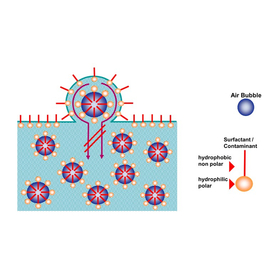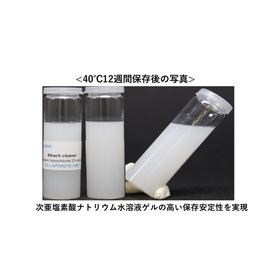Additive for thermoplastic compounds: BYK-MAX CT 4270
Organic modified layered silicates (clay materials) that impart reinforcing effects to thermoplastic compounds.
BYK-MAX CT 4270 allows for improvements in low density, surface appearance, flow length, dimensional stability, and scratch resistance by being added to TPO or polyolefin compounds in amounts of less than 10 weight percent, preferably less than 6 weight percent. It also enhances mechanical properties such as tensile strength. The intended applications are inorganic fillers or glass-filled compounds for TPO-based automotive parts. Unlike other commercially available clay products, BYK-MAX CT 4270 is based on mixed-form clay technology, which facilitates easy dispersion. The organic modification of BYK-MAX CT 4270 is designed to withstand thermal history in the compound. Our proprietary mixed-form clay exhibits excellent dispersibility. Additionally, changes in melt rheology can improve flow length within the mold and reduce resin temperature, leading to shorter cycle times. In composite formulations, a resin-rich surface is often observed. While increasing tensile strength, it is important to note that BYK-MAX CT 4270 may reduce impact strength. To avoid this, a comprehensive evaluation of the entire formulation is necessary. Blending with impact modifiers in the base resin is crucial for achieving the final performance results.
basic information
BYK-MAX CT 4270 Product Data Composition: Organic modified layered silicate Density (25°C): 1.5-1.7 g/ml Moisture content: < 6 % Form: Free-flowing powder Average dry particle size D50: < 40 μm Color: Off-white
Price information
Please contact us for the price.
Delivery Time
Model number/Brand name
BYK
Applications/Examples of results
Recommended Use It can be used in many thermoplastic resins, but it is particularly suitable for use in polyolefins and TPO. Recommended Addition Amount: 3-6% as an additive relative to the total formulation. Addition Method To achieve optimal dispersion and separation of the additive, it is recommended to use a co-rotating twin-screw extruder or BUSS continuous kneader when compounding thermoplastic materials. It is effective to select a screw design with a long unit L/D (>40) and high dispersion performance. To avoid compression of the additive, it is recommended to add it to the already molten polymer via a side feeder, if possible.
catalog(4)
Download All CatalogsNews about this product(1)
Recommended products
Distributors
BYK Japan KK is engaged in the import, wholesale, and technical service of paints, additives, and measuring instruments. As a leading supplier of functional additives and testing equipment across various application fields, we provide solutions to assist you in product development and solving challenges. Please feel free to contact us if you have any inquiries.



















































